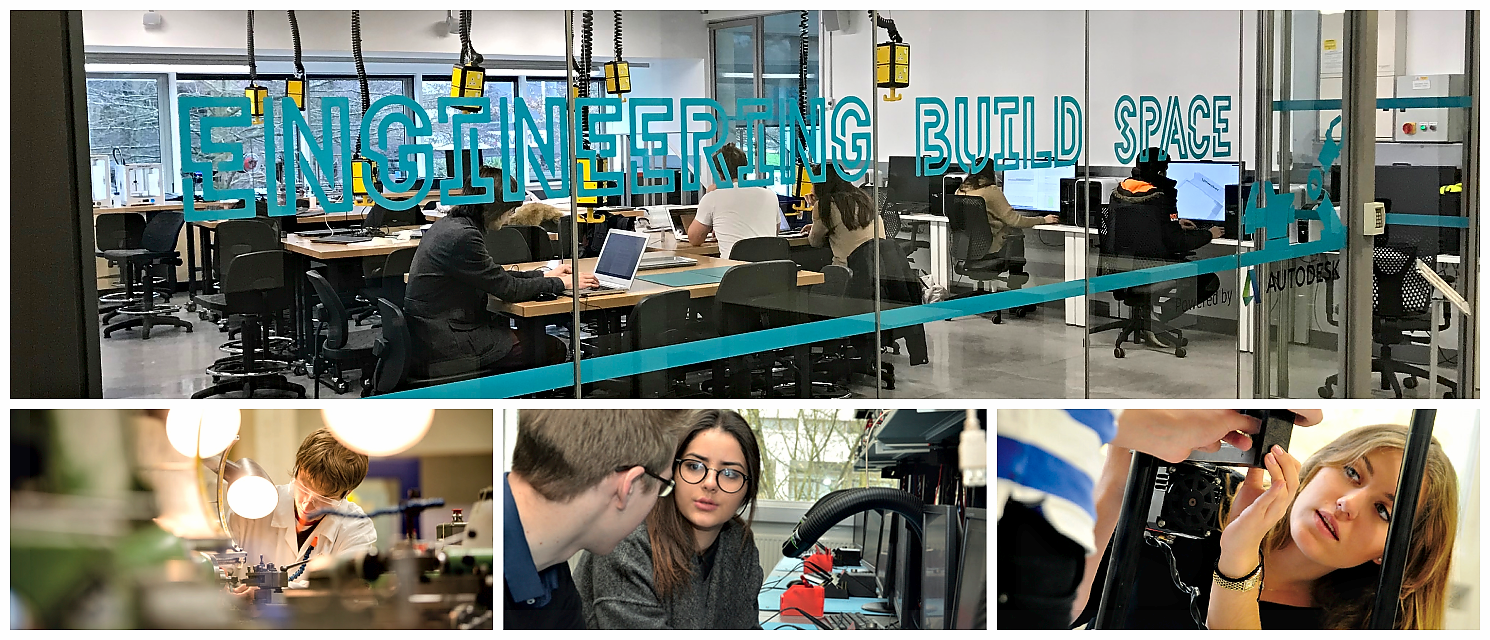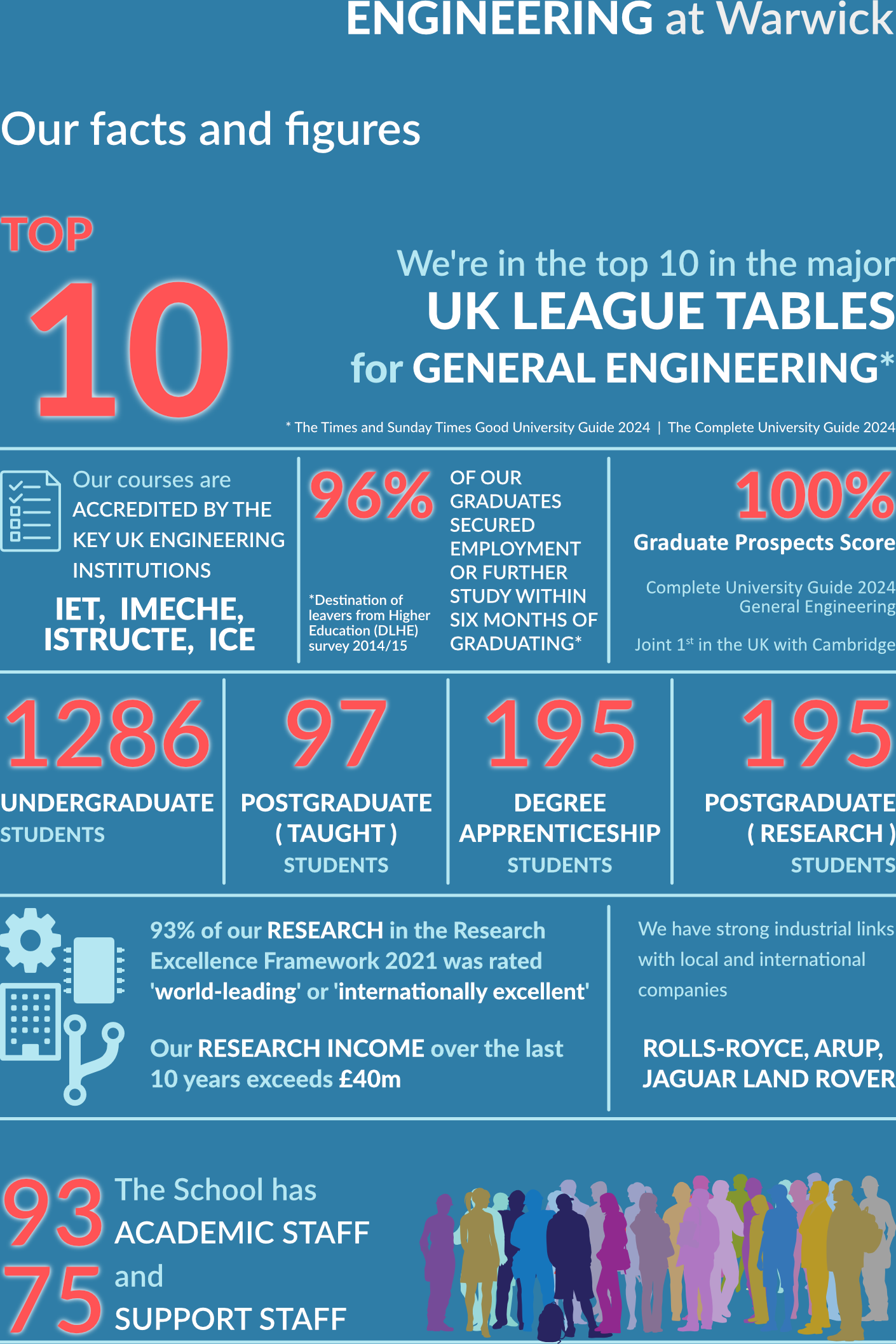About

About the School of
Engineering
Warwick’s School of Engineering is one of the leading unified engineering schools in the UK. Our integrated approach to engineering education brings together the key branches of engineering and draws upon our research strengths in core engineering disciplines.
Study
Warwick offers a range of exciting engineering courses that will open up a world of opportunities to you. Our international reputation for excellence in teaching and research means that your Warwick degree will be known and respected throughout the world. Our courses are accredited by the key engineering institutions in the UK including the IET, IMechE, IStructE and ICE.
Research
The School of Engineering benefits from its multidisciplinary approach, with research covering a broad range of topics. Key themes of Energy, Biomedical Engineering and Cities provide a framework to the research efforts, which are underpinned by four discipline streams and fourteen research groups. The School employs some of the leading engineers in their field, who regularly publish papers in top ranking journals. There are currently over 150 students undertaking postgraduate research degrees and 55 research post-doctorate staff.
Partnerships
The School of Engineering has a strong track record of collaborating with industrial partners through both research and teaching activities, and with internationally-recognised academics at universities both in the UK and internationally. Our strategic partnership with WMG on campus allows our courses to be delivered in a unified way, drawing on the expertise and facilities of two of the University’s departments. The two departments also collaborate on a number of internationally-significant joint research programmes.
Warwick Engineers are so good that we could place them anywhere in the business.
Iain McFayden (Goldman Sachs)
My first year at Warwick University studying engineering was a fantastic experience, meeting lots of new and interesting people; challenging group projects; hands-on laboratory sessions and fascinating engineering related topics. In my second year, I am still just as enthusiastic about the course! With the course remaining general for all students for the first year, you have more time to explore all the different branches of engineering before deciding where to specialise and also to appreciate different fields of engineering in future careers. I am looking forward to graduating as a well-equipped, successful engineer.
Rachele Williams, Engineering

